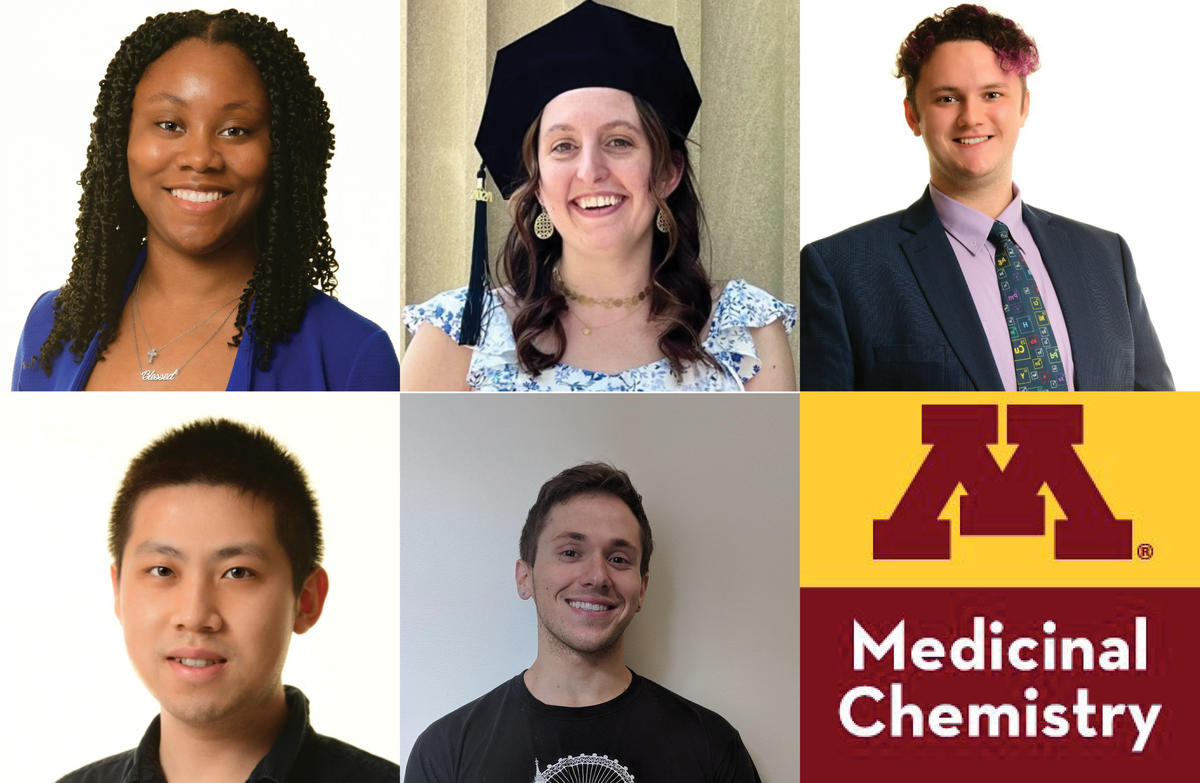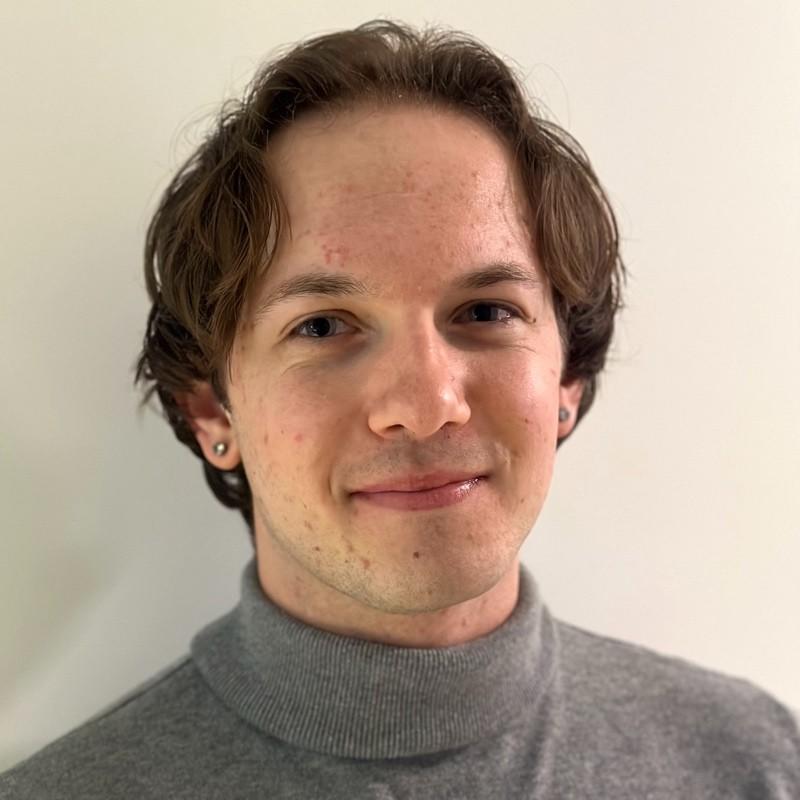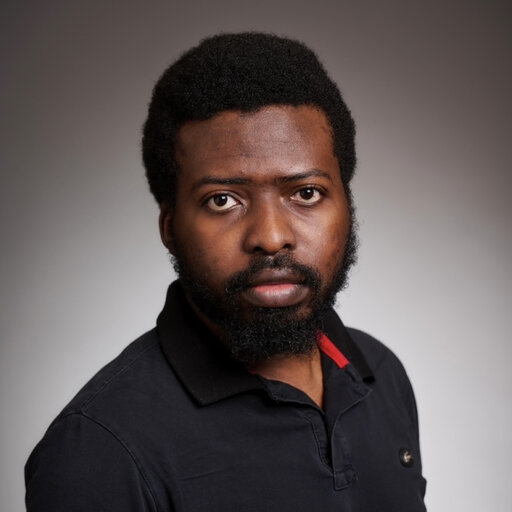Caitlin Lichtenfels: A nontraditional journey to science informs passion for community outreach
May 15, 2024
Erin Wilson

PhD candidate Caitlin Lichtenfels has researched cell-based drug delivery, received an award for her community outreach, and earned fellowships for her success in the medicinal chemistry department. But when she was little, she had no plans to be a scientist— she didn’t think she was smart enough. She grew up dealing with significant medical issues in her adolescence— trigeminal neuralgia and hemiplegic migraines— and struggled to engage in high school because of it.
“I had two very rare brain disorders that I was diagnosed with and it really inhibited my lifestyle at the time,” she said. “I wasn’t trying in school, I felt like teachers weren’t really paying attention to me, a lot of people had no idea what was really going on.”
She went to community college, took a gap year to work, then went to Penn State to study veterinary sciences after enjoying a class on animal anatomy. Her sophomore year she took an organic chemistry class and fell in love with it. She switched majors her senior year, searched for research positions around the country and heard back from one, which led her to Minnesota and eventually the College of Pharmacy. She says choosing this path was the “best, most spontaneous decision” of her life. She hopes sharing her experience will encourage others who may be scared to pivot and pursue a calling without a traditional track to it.
“I like that I do something very different every day. Medicinal chemistry is so interdisciplinary; I don’t just do biology and I don’t just do chemistry,” she said. “But I also really like feeling like there’s a purpose behind what I’m doing. And I feel like trying to understand diseases, trying to help with medicine, that's always going to provide some benefit to the public.”
Caitlin now works with Dr. Carston Wagner, head of the college’s medicinal chemistry department, researching farnesylated chemically self-assembled nanorings for cell-based drug delivery. In layperson’s terms, this refers to anchoring a drug to the surface of immune cells, which naturally seek out tumor sites, and releasing it when those cells come into contact with cancer cells— essentially transferring the drug and activating it at the tumor site.
Despite this research, it takes more for Caitlin to feel fulfilled in her work. Her community outreach efforts won her a DEIR award from the American Chemical Society; namely her role in creating the STEAM Team, a group of students from her department who mentored Thomas Edison High School students to cultivate academic success and interest in the sciences. Part of the aim was to change the mindsets of any students who think they may not have what it takes to be a scientist by speaking candidly about her high school experience.
“I know what it’s like to have a lot of stuff going on at home and no one knows, to just present as a ‘bad student,’ shall we say. That motivates me a lot to change that kind of thinking,” she said. “I think we've been really intentional with trying to reach communities and not just going into a school where kids already know they want to be a scientist.”
The teachers Caitlin worked with have since left Thomas Edison High School, but the team is partnering with organizations like Breakthrough Twin Cities to continue their work in high schools and ensure the STEAM Team doesn’t end when Caitlin leaves the department.
“All of the kids that are in the program…are fitting these certain criteria and probably don't have access to scientists, to the resources, or don't have someone talking to them about what it means to go to grad school,” she said.
Caitlin was also recently awarded the Louise T. Dosdall Fellowship, which honors women graduate students in any field of the natural or physical sciences who are pursuing a career in research.
“Being a woman in science has a lot of challenges that people don't see on the outside… There's a lot of little things that happen throughout your career that at times can feel really dissuading,” she said. “And I think when you have awards like this, especially from a woman who was a pioneer in her field...it gives you a little extra push to kind of ground you.”
She’s adamant that none of her achievements in the college would have happened without two fellow women in science— medicinal chemistry PhD students Laura Hirsch and Mackenzie Wyllie.
“My outreach efforts? None of it would have been possible without them. When I first started, they were the first people to come with me to the high school, the first people to support me…,” she said. “We’re really good friends, but they’re amazing scientists too. I think more than anything, I will remember my friends very fondly.”
And every day, her experience growing up with medical issues informs her work.
“I’m a patient before I’m a scientist…I remember going years without a diagnosis,” she said. “Now, I think it helps me contextualize…we’re taking baby steps and someone out there can benefit from what I’m learning today. Having the ability and the healthy body that I have now gets me out of bed.”


